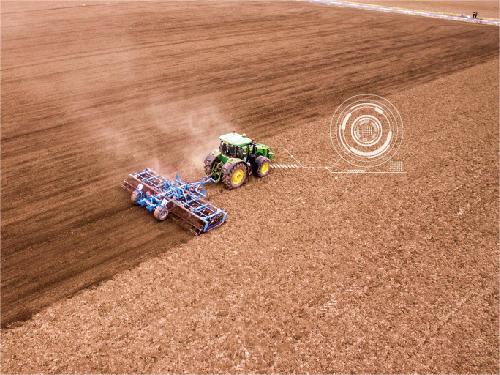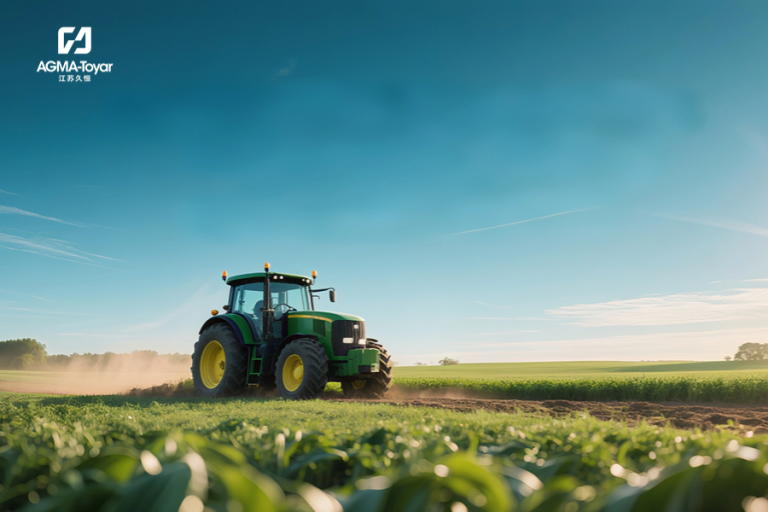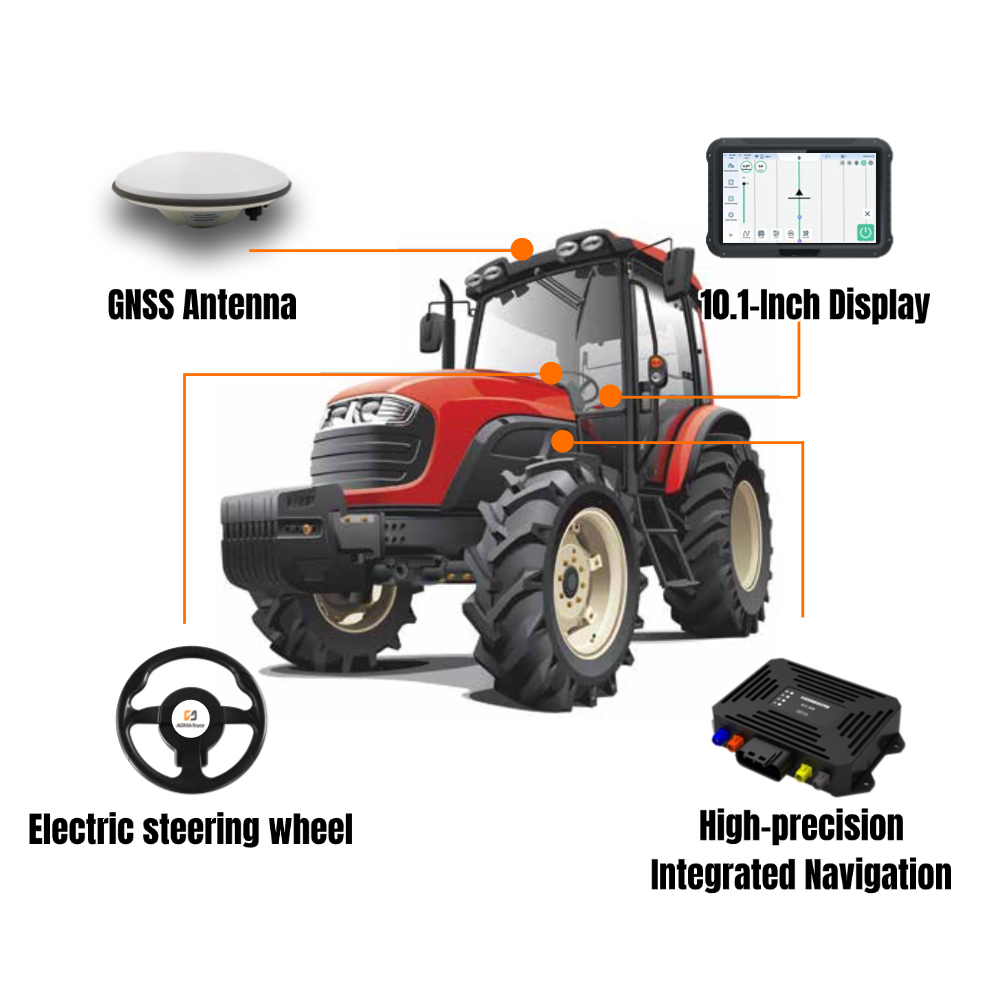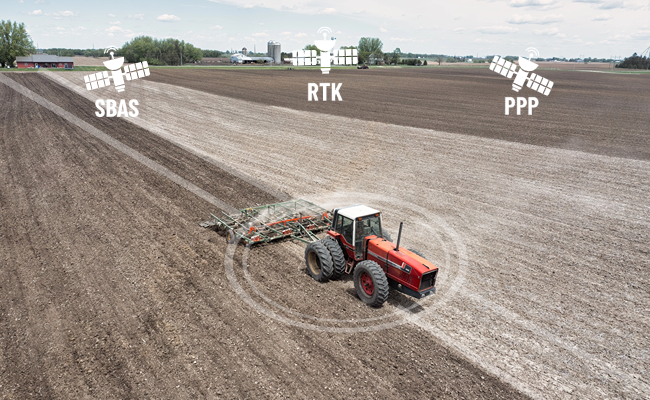In traditional farming, tractor steering mostly depends on the driver’s skills, leading to mistakes and lower efficiency. Modern farming now uses RTK auto-steering systems for tractors, which give extremely accurate steering guidance. This technology greatly improves efficiency, cuts down costs, and supports environmentally friendly practices.
How Does RTK Auto-Steering Provide High Precision?
An RTK auto-steering system includes:
- Satellite Receiver (GNSS): Picks up satellite signals to pinpoint the tractor’s exact location.
- Navigation Sensor (IMU): Keeps guiding the tractor even when satellite signals are weak or lost.
- Steering Device: Moves the steering wheel automatically through hydraulic or electric control.
- Control Software: Calculates the best driving route, avoiding overlap or gaps in the field.
This automated system reduces steering errors from about ±10 cm (manual steering) to just ±2.5 cm, helping farmers achieve true precision.
Learn more about [how tractor auto steer systems work] here.
5 Benefits of Auto Steer System to Drive Modern Farming
Improved Efficiency: Non-stop Operations
With RTK auto-steering, tractors can run day and night without needing constant human control. This reduces the amount of labor needed, especially for large farms. For example, one farm in Iowa using John Deere’s AutoTrac saw planting efficiency rise by 40% and labor costs drop by 35%.
Saving Money: Less Waste, More Savings
Auto-steering systems reduce overlapping or missed spots in fields, which means:
- Saving up to 20% on fuel
- Using 15%-30% less seed and fertilizer
- Getting more value from investments
A study in Texas found that combining auto-steering with variable fertilizer application cut fertilizer costs by 21%.
Better Land Use: No Wasted Areas
Manual steering often results in uneven coverage of fields, especially in oddly shaped areas. Auto-steering systems provide:
- Accurate turns and straight paths
- Less wasted space around edges and corners
- More production from the same land area
By using auto-steering technology, wasted space at field edges can decrease by 5%-8%, meaning farmers can harvest around 8 extra tons of grain per 100 hectares.
Environmentally Friendly: Reducing Farming’s Impact
Consistent driving paths reduce soil compaction and protect soil health, which:
- Lessens soil damage
- Improves fuel use by about 20%
- Lowers carbon emissions by around 15%
This aligns with global sustainability programs like the EU’s “Farm to Fork” strategy, promoting responsible farming practices.
Preparing for the Future: Sustainable Farming Solutions
RTK auto-steering technology isn’t just about upgrading equipment. It’s about dealing effectively with labor shortages, rising operating costs, and environmental challenges. Its accurate, cost-saving, and eco-friendly features make it key to modern farming’s future.

RTK steering system benefits for precision farming accuracy
Auto-steering systems offer significant improvements in accuracy, efficiency, cost savings, land use, and environmental sustainability. Adopting this technology helps farmers increase productivity and profitability while meeting environmental standards, making it an essential part of modern farming practices.
Ready to simplify your farming with RTK auto-steering? Contact us today for easy-to-understand information and solutions tailored to your farm.
People Also Ask About RTK Steering Systems
Q: Is RTK auto steer better than standard GPS?
A: Yes. While standard GPS has a 50cm-1m error margin, RTK auto steer provides 2.5cm pass-to-pass accuracy, which is essential for high-value crops, precision seeding, and strip-tilling.
Q: How does an RTK steering system save money?
A: An RTK steering system reduces overlap to less than 1%, saving up to 10% on fuel, seeds, and fertilizer. It also allows for night operations, significantly increasing field productivity.
Q: Do I need a subscription for RTK auto steer?
A: Most RTK systems require a signal subscription or a local base station to achieve centimeter-level precision. At AGMA-Toyar, we provide flexible solutions to fit different farm sizes.





